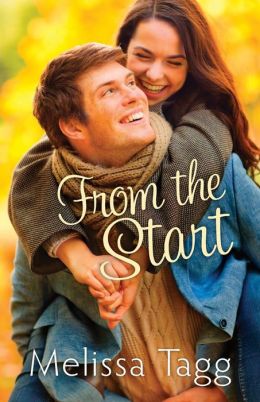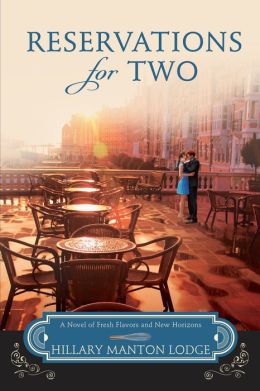Thursday with Amanda: How to Write a Novel that is Easy to Market
 Amanda Luedeke is a literary agent with MacGregor Literary. Every Thursday, she posts about growing your author platform. You can follow her on Twitter @amandaluedeke or join her Facebook group to stay current with her wheelings and dealings as an agent. You can also check out her marketing skills on Fiverr. Her author marketing book, The Extroverted Writer, is available from Amazon and Barnes & Noble.
Amanda Luedeke is a literary agent with MacGregor Literary. Every Thursday, she posts about growing your author platform. You can follow her on Twitter @amandaluedeke or join her Facebook group to stay current with her wheelings and dealings as an agent. You can also check out her marketing skills on Fiverr. Her author marketing book, The Extroverted Writer, is available from Amazon and Barnes & Noble.
Does this sound familiar?
You have a novel that seems to be going nowhere. It’s a romance, after all. And there are a bazillion other romance novels out there, competing for the same readers. So you try to think outside the box. You can’t really promote yourself, because it’s the beginning of your career and you don’t have a massive fanbase yet, so you turn to your book to help you. It’s really all you have to offer.
You blog excerpts of your book and set up character Twitter accounts and pin a ton of pictures that remind you of your novel and you do gift card giveaways and chapter one booklets and you order bookmarks and go to bookstores and … nothing seems to be working.
You’re still a voice among thousands of other voices. And you’re doing your song and dance along with everyone else, while this mass of potential readers watches.
Novels can be next to impossible to promote or market. Unlike nonfiction, they don’t solve problems (in the conventional sense) or help readers out of holes. They don’t impart knowledge and wisdom in the same way that nonfiction books do, and they certainly don’t pretend to have all the answers. Nope. Instead, fiction is viewed as a form of entertainment. A luxury item for those who have the time.
This means that each time a novel is read it’s because that person has chosen to spend their free time not with movies or Facebook or friends or church or shopping or playing sports or hanging out with their kids or ANY other hobby that they may have. No, they are choosing to read a story.
And because they have chosen to read this story instead of doing any of the other countless awesome things they could be doing, they want that story to be a perfect fit. They want it to be the right choice.
So it’s really not a big surprise that readers don’t simply pluck any old book off the shelf. They weigh recommendations from friends. They weigh their mood. And they weigh the likelihood that they will connect with a story based on their interests.
This is where many novels fall short.
A majority of romance novels that are pitched to me involve the same idea. There is a young woman. There is a young man. There is a small town. There is a family business (maybe a B&B or something of the sort). There is conflict. There is resolution.
Nothing about this idea, aside for maybe the B&B, stands out. Nothing.
Here’s a typical women’s fiction idea:
There is a woman. She is struggling because of ___ (divorce, infidelity, abuse, etc.). There is a man. He is nice but she doesn’t trust him. There is a town and a few friends. She walks around. She hangs out with friends. She slowly heals. Something happens to set her back (ex-husband comes back into town, she finds out she’s pregnant, she becomes afraid to go out alone, etc.). Friends and man help her through. She heals.
Again…nothing stands out. There is nothing to connect this story with the reader. There is nothing that screams HEY! I THINK WE’RE A MATCH!! because there is nothing that connects the reader to the story. There is nothing specific about these stories and these characters that readers can latch on to.
Which means they’re impossible to promote.
The more unique a novel is–the more it targets a specific type of person with specific hobbies and specific tastes–the easier it is to promote.
What do I mean by this? Let me point you to two examples.
From the Start by Melissa Tagg and Reservations for Two by Hillary Manton Lodge are romance novels. They pretty much fit the above romance description, but they’re also MORE than that.


When writing your novel, think about reader groups. Think about hobbies or things of interest or pastimes that you can put into your book. Then, when it comes time to promote, you simply target those groups and make them aware that your book exists. The best part? They won’t be facing this huge question of “Will I like this?” because you’ve answered that for them by putting things that they like INSIDE THE BOOK.
It’s a beautiful thing that not only strengthens marketing, but it will help your book stand out.
Is this making sense? I feel it’s a big topic to cover in one post, so let me know if you have questions! I’m happy to try and help you figure out how you can make YOUR novel a better fit for niche groups.


10 Comments
At the end of your post, you asked if this makes sense. Yes, it totally does. I thought about the books where I connected with a character, and asked: what made me connect with that character? In some cases, it’s the event they’re going through. Other cases, it’s where they are in life. And sometimes, it’s about their interests — be that writing or music or their goals. Thank you for writing this post — I feel that this advice I can use!
Yay! I agree with you…I think of Sunshine by Robin McKinley. Really, it’s just another vampire story, but the way that Robin developed the mc’s job and day-to-day life was so unique and I was completely engrossed in this idea of working at a bakery in a town that had supernatural creatures roaming in the shadows. Probably because I like to bake!
How would you twist this around for YA and fantasy novels?
It’s the same concept, Andy. Take Gossip Girl, for example. Those books appealed to a clear demographic because of their intense focus on fashion and high-society. So instead of trying to appeal to all YA readers, the books hit a specific group. Fantasy can and should do the same, but worldbuilding is also huge. So you could take this concept and apply it to your worldbuilding as well as to your characters and plot, and you’d be more likely to stand out.
Okay. Thanks, Amanda!
Since my sister and I gathered together a small herd of alpacas, so many people have told me I needed to include alpacas in my novels. I’m not sure they have a place in my current manuscript, but I’m seriously thinking about having them in Book 3 of the series I’m working on.
Appreciate the post, Amanda.
OOOH! I think this is a great idea.
I love the marketing angles you mention. Mine may be too heavy and I don’t know if there are groups to go with it. Would a heroine with a disability appeal to readers who have the disability or know someone who does? She gets involved with a charity to help people with the disability, and a portion of the book sales are donated to the charity. My favorite romance concept is about a support group similar to a diet support group or AA, but they’re helping each other to be smart spenders–in a fun way because it’s character-driven. Alternatively, I’ve wanted to write about characters in a reality show like The Biggest Loser only instead of losing weight they would have to lose debt, Dave Ramsey-style. Hysteria and sobbing would abound! 🙂 Cathy Shouse
Yeah, it’s hard to market successfully when you focus on the heavy angles of a book. That’s why in my example, focusing on a divorce them (or the like) wasn’t enough. People want to escape when they read! I wouldn’t focus on the disability angle, but rather the charity angle. There are plenty of readers who are really interested in giving back, so that may be an in.
Thanks for your thoughts. I will enjoy something more fun, too.